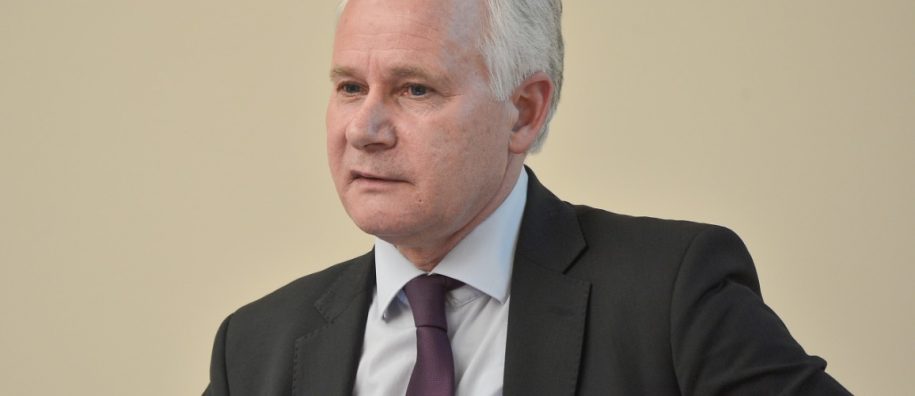
Mykolas Romeris University (MRU) Rector Assoc. Prof. Algirdas Monkevičius said possible changes at MRU are still in the discussion stage. International students at MRU can remain calm and rest assured that MRU will seek to strengthen and improve studies quality at the University, he said.
Rector Assoc. Prof. Monkevičius discussed optimisation of Lithuania's higher education network and the situation of MRU in this context.
RECTOR, CAN YOU TELL US WHAT CRITERIA WERE USED TO DEVELOP THE RECOMMENDATIONS TO THE MINISTRY OF EDUCATION of EDUCATION AND SCIENCE?
A: First, let me say that I am excited about the progress made at Mykolas Romeris University and want to thank the academic community and our students that there was much achieved during the last year. These advances helped us present clear, objective evidence-based recommendations. These proposals had to be based on the quality of educational institutions' offered education and research that is in line with the city, region and the sector's needs. Also based on the effectiveness of scientific research potential and based on financial viability. According to all these criteria, we are among the leaders in the social sciences.
Mykolas Romeris University is the largest social science university in Lithuania. MRU has developed its potential and has able centres in the areas of educational sciences, economics, humanities, communication, political science, psychology, sociology and management fields.
MRU was the first in Lithuania to begin to implement joint studies programmes with universities abroad in Austria, France and Finland. In addition educational partnerships were developed with South Korea's and other Asian-region universities.
At this time, MRU has one of the largest international student bodies among universities in Lithuania with a 3,5 % of the total student body.
In 2015, MRU united a number of strong researchers' groups under the new Social Innovations Laboratory network, MRU LAB, which is successfully implementing interdisciplinary social innovation projects. Results are evident not only in the number of international research proposals submitted, but also among the project proposals that have been selected. The European Commission's financed Erasmus+ project, "Creation of Social Innovation Culture in Higher Education" indicates that MRU is the best University, among several hundred in Central and Eastern Europe, that is developing social innovations.
WHAT CONCRETE PROPOSALS WERE SUBMITTED TO THE MINISTRY OF EDUCATION and SCIENCE?
A: Having taken into account our strengths, we recommended three possible scenarios for consideration. The first that MRU independently implements its social sciences development strategy oriented toward its main areas. By way of a network with the Didlaukis Academic Community and educational institutions there, it would create a joint academic community with the Vilnius University of Applied Sciences, The Vilnius Social Services Employees Vocational Training Centre and the Baltupiai Gymnasium and other educational institutions in the Baltupiai area.
The second and third proposals are the result of discussions with Vilnius University (VU) and the Vilnius Gediminas Technical University (VGTU). There was a search for a rational means how to the social sciences potential and technical could come together, create synergies and increase the concentration of social sciences and reach a new studies and research quality.
However, I want to emphasize that possible changes are only in the discussion stage. International students studying at our University can be calm and rest assured - we are seeking to further strengthen our University and improve the quality of studies.
Rector, thank you for this interview.